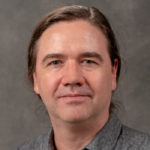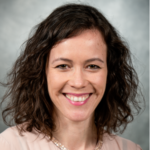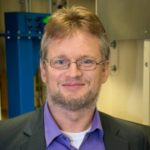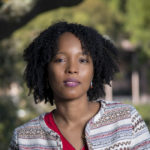The projects of 15 Biosciences Area scientists and engineers received funding through the FY21 Laboratory Directed Research and Development (LDRD) program.

 From the Biological Systems and Engineering Division, Héctor García Martin and Deepti Tanjore had new projects funded. Martin will use machine learning to design molecules with desired properties as part of a cross-Area effort, and Tanjore will use quantum imaging to measure metabolite dynamics in bioreactor microbial culture.
From the Biological Systems and Engineering Division, Héctor García Martin and Deepti Tanjore had new projects funded. Martin will use machine learning to design molecules with desired properties as part of a cross-Area effort, and Tanjore will use quantum imaging to measure metabolite dynamics in bioreactor microbial culture. 
 Steve Singer and Antoine Snijders received funding to continue their projects. Singer is developing electron-economical CO2 bioconversion, and Snijders is evaluating the radiobiological effects of laser-accelerated ion beams.
Steve Singer and Antoine Snijders received funding to continue their projects. Singer is developing electron-economical CO2 bioconversion, and Snijders is evaluating the radiobiological effects of laser-accelerated ion beams.

 From the Environmental Genomics and Systems Biology Division, Chris Mungall and Kateryna Zhalnina had new projects funded. Mungall will create a queryable COVID-19 knowledge graph to enable machine learning–based predictions. Zhalnina, this year’s Early Career track awardee, will study plant-archaea interactions to regulate nitrogen availability in soils and increase carbon.
From the Environmental Genomics and Systems Biology Division, Chris Mungall and Kateryna Zhalnina had new projects funded. Mungall will create a queryable COVID-19 knowledge graph to enable machine learning–based predictions. Zhalnina, this year’s Early Career track awardee, will study plant-archaea interactions to regulate nitrogen availability in soils and increase carbon. 
 Ben Brown and Jenny Mortimer received funding to continue their projects. Brown is developing third-wave machine learning for the biosciences, and Mortimer is reimagining a root system optimized for plant-microbe interactions.
Ben Brown and Jenny Mortimer received funding to continue their projects. Brown is developing third-wave machine learning for the biosciences, and Mortimer is reimagining a root system optimized for plant-microbe interactions.

 From the Joint Genome Institute, Ian Blaby and Benjamin Cole had new projects funded. Blaby will develop a chassis for engineering a microbial phototroph towards the manufacturing of biochemicals. Cole will investigate the spatial transcriptomics of the plant-microbial interface.
From the Joint Genome Institute, Ian Blaby and Benjamin Cole had new projects funded. Blaby will develop a chassis for engineering a microbial phototroph towards the manufacturing of biochemicals. Cole will investigate the spatial transcriptomics of the plant-microbial interface. 
 Esther Singer and Yasuo Yoshikuni received funding to continue their projects. Singer is working on improving bioenergy yield under drought stress, and Yoshikuni is developing a biological 3D fabrication platform for synthesis of complex genome-encoded composites (GECOs).
Esther Singer and Yasuo Yoshikuni received funding to continue their projects. Singer is working on improving bioenergy yield under drought stress, and Yoshikuni is developing a biological 3D fabrication platform for synthesis of complex genome-encoded composites (GECOs).

 From the Molecular Biophysics and Integrated Bioimaging Division, Nathalie Elisabeth and Peter Zwart had new projects funded. Elisabeth will use 3D single-cell mapping to characterize carbon-cycling activity in the rhizosphere. Zwart will generate discovery-driven analytics in 5D microscopy.
From the Molecular Biophysics and Integrated Bioimaging Division, Nathalie Elisabeth and Peter Zwart had new projects funded. Elisabeth will use 3D single-cell mapping to characterize carbon-cycling activity in the rhizosphere. Zwart will generate discovery-driven analytics in 5D microscopy.  Kanupriya Pande received funding to continue her project; she is creating computational tools for extracting macromolecular conformational dynamics from diffraction and imaging data.
Kanupriya Pande received funding to continue her project; she is creating computational tools for extracting macromolecular conformational dynamics from diffraction and imaging data.



